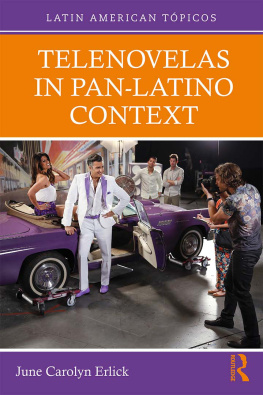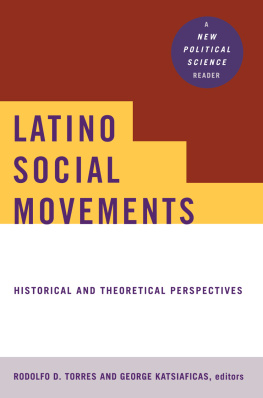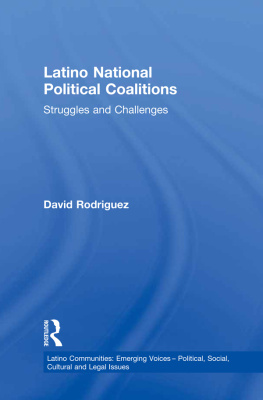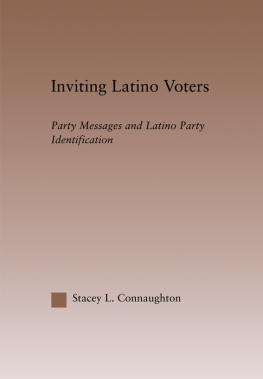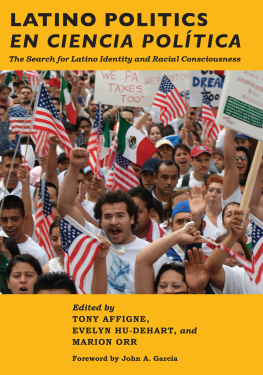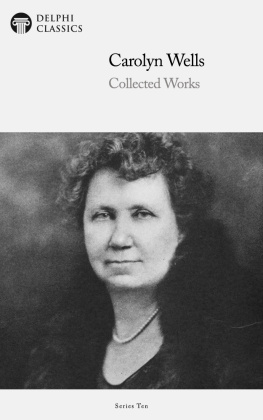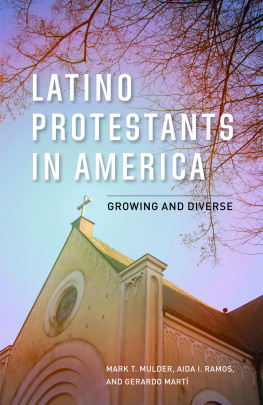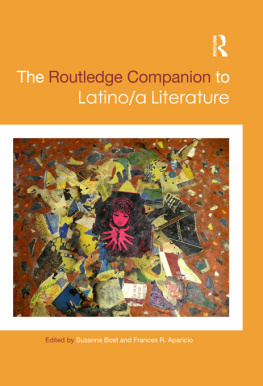It is a sign of laziness to pigeonhole telenovelas as a repository of stereotypes. A complex, multifaceted universe is depicted in them through the prism of melodrama, which the masses, especially in Hispanic civilization, wholeheartedly adore. Frankly, literary classics such as Gabriel Garca Mrquezs One Hundred Years of Solitude are melodramatic, too. A less condescending, more sensible approach is to look at melodrama as a tool for understanding social mores, which is what June Erlick does in this practical book. Im grateful to her for taking a contrarian approach.
Ilan Stavans is Lewis-Sebring Professor in the Humanities, Latin American and Latino Culture at Amherst College, author of Love and Language and I Love My Selfie, and editor of The Norton Anthology of Latino Literature
A delightful, thoroughly researched and enlightening account of what is perhaps Latin Americas most important cultural phenomenon, the telenovela.
Alma Guillermoprieto is a writer for The New York Review of Books and the author of The Heart That Bleeds
Telenovelas in Pan-Latino Context
This concise book provides an accessible overview of the history of the telenovela in Latin America within a pan-Latino context, including the way the genre crosses borders between Latin America and the United States. Telenovelas, a distinct variety of soap operas originating in Latin America, take up key issues of race, class, sexual identity and violence, interweaving stories with melodramatic romance and quests for identity. June Carolyn Erlick examines the social implications of telenovela themes in the context of the evolution of television as an integral part of the modernization of Latin American countries.
June Carolyn Erlick is Publications Director at the David Rockefeller Center for Latin American Studies at Harvard University and Editor-in-Chief of ReVista, the Harvard Review of Latin America.
Latin American Tpicos
Series Editor: Michael LaRosa, Rhodes College
Telenovelas in Pan-Latino Context
June Carolyn Erlick
Telenovelas in Pan-Latino Context
June Carolyn Erlick
First published 2018
by Routledge
711 Third Avenue, New York, NY 10017
and by Routledge
2 Park Square, Milton Park, Abingdon, Oxon OX14 4RN
Routledge is an imprint of the Taylor & Francis Group, an informa business
2018 Taylor & Francis
The right of June Carolyn Erlick to be identified as author of this work has been asserted by her in accordance with sections 77 and 78 of the Copyright, Designs and Patents Act 1988.
All rights reserved. No part of this book may be reprinted or reproduced or utilized in any form or by any electronic, mechanical, or other means, now known or hereafter invented, including photocopying and recording, or in any information storage or retrieval system, without permission in writing from the publishers.
Trademark notice: Product or corporate names may be trademarks or registered trademarks, and are used only for identification and explanation without intent to infringe.
Library of Congress Cataloging-in-Publication Data
A catalog record for this book has been requested
ISBN: 978-1-138-68174-3 (hbk)
ISBN: 978-1-138-68176-7 (pbk)
ISBN: 978-1-315-54560-8 (ebk)
Typeset in Bembo
by Apex CoVantage, LLC
For the people of Colombia, and, in particular, Micaela and Sara Luna, Manuela, Santiago and Sebastin, who hopefully will live in a world of peace.
Bienvenidos to Tpicos, a new series of books for classroom use developed by Routledge. The series is designed to reach a new generation of college students, and the reading public, searching for excellent syntheses of important topics relevant to the Latin American region. The series will offer relatively short, accessible survey books that are based on sound scholarship combined with the particular interest of the author.
The authors writing for this series represent a variety of disciplines; we know that Latin America can only be understood through study and reading across disciplines. Historians, political scientists, anthropologists, literary critics and journalistsamong othershave helped expand the understanding of a region that remains somewhat mysterious to the general reading public in the United States, and to college students. In recent days, the Latin American region has lost some of its allure as other areas of the worldEast Asia and the Middle East, for exampleattract the attention of policy makers, and the funding priorities of think tanks, foundations and universities.
We want students to study the history and culture of Latin America, and the books in this series are designed to support that initiative. Many students graduate from college never having formally studied Latin America, and our hope is that, with this series that connects the Latin American region to cultural and historic themes globally, we can challenge students to focus on a critically dynamic region of the world.
Our first book, authored by journalist June Erlick, focuses on telenovelas, and Junes clear, captivating prose helps the reader contextualize telenovelas in a Latin American and world context. In preparing this book, June watched a lot of hours of Latin American telenovelas and her determination allows the reader to see the political, economic and cultural relevance of this critical Latin American cultural manifestation. Im very grateful to June Erlick for helping us kick off this series and hopeful the series helps promote a new, fresh conversation based on relevant topics and exciting, enticing writing.
Michael J. LaRosa
Series Editor
March, 2017
Coral Gables, Florida
Acknowledgments are terrifying. Or I should say, writing acknowledgments is terrifying. Im always afraid Ill leave someone out, put the thanks in the wrong order or thank someone who would rather remain anonymous.
So when Routledge indicated that acknowledgments were optional, I almost took up the offer. But how could I? This book has been a collaboration of many, many friends and scholars who shared their telenovela experiences with me. Its been an almost daily obsession of mine at the office, parties and other social events. Instead of How are you? or Isnt the weather terrible? it would be Tell me about the first telenovela you ever saw, or Do you watch such and such? And Id get a smile and almost always a long and fertile answer. So here goes, and if you are not here, but should be, know that you are a part of that wonderful collective of shared experiences.
First and foremost, a great big acknowledgment to my series editor Michael LaRosa, who saw a book before I did in my incessant babbling about telenovelas. And then, a hearty thanks to Eve Mayer and Theodore Meyer, my editor and assistant at Routledge, who had utmost patience with my trivial pursuit questions about capitalizations and serial commas. And thanks to my copy editor, Sharon Tripp.
I work in a wonderful academic center, the David Rockefeller Center for Latin American Studies at Harvard, headed up by Brian Farrell and Ned Strong (thanks for your patience and support!). This community allowed me to chat on a daily basis with scholars and practioners from all over Latin America. A special thanks to Abby Cordova from El Salvador, Liza Paravisini from Puerto Rico, Esther Hamburger from Brazil, Geydis Fundadora from Cuba, Mara Vzquez from Argentina, Ana Mara Reyes from Colombia and Boris Muoz from Venezuela. Your suggestions and stories have shaped this book.


